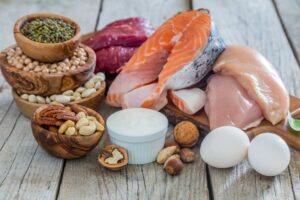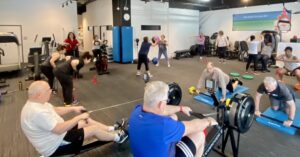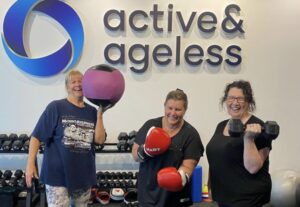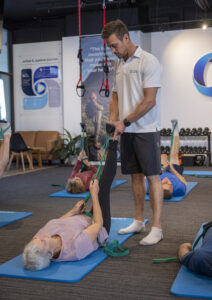Nutrition and diet can be very confusing topics, with so many differing opinions….
“Eat fewer carbs, eat less fat, eat more protein, eat more complex carbs, quit sugar, eat less red meat, don’t eat too much fruit, eat less dairy?!”
Even the most well-meaning person who diligently watches what they eat and has a sound knowledge of healthy eating can be left scratching their heads.
We have access to such an array of information on food nowadays and advice on what we “should” and “shouldn’t” eat can be found almost anywhere. This then poses the question, why are obesity and chronic health problems that can be attributed to poor diet such as high blood pressure, high cholesterol, obesity, and type 2 diabetes so prevalent in western societies?
I’ve done some research from some well-respected and prominent entities within Australia and have tried to simplify for you what constitutes a healthy diet.
So what is a Healthy Diet?
A healthy diet is eating a variety of foods from each of the 5 food groups.
We’re not suggesting you cut anything out completely but focus more on fuelling up on foods full of vitamins and nutrients that will benefit your body.
According to the ‘Eat for Health’ Government website:
“Many diet-related health problems in Australia are also associated with an inadequate intake of nutrient-dense foods, including vegetables, legumes/beans, fruit, and wholegrain cereals. A wide variety of these nutritious foods should be consumed every day to promote health and wellbeing and help protect against chronic disease”
The Australian Heart Foundation also shares a similar message…
What is heart-healthy eating?
Healthy eating for your heart includes:
1. Plenty of vegetables, fruits, and whole grains
2. Variety of healthy protein sources including fish and seafood, lean meat and poultry, legumes, nuts, and seeds
3. Reduced fat dairy such as unflavoured milk, yoghurt, and cheese
4. Healthy fat choices with nuts, seeds, avocados, olives, and their oils for cooking
5. Herbs and spices to flavour foods, instead of adding salt.
* Water is always the preferred beverage of choice.
* You can find more information about Healthy Eating Guidelines on the Eat For Health Website…
https://www.eatforhealth.gov.au/guidelines/australian-dietary-guidelines-1-5
You don’t need to spend a fortune on the latest superfoods to eat healthily, most of these healthy foods that are recommended can easily be found in your local supermarket, and you don’t even need to waste time walking down every aisle. Here at 55Plus Active and Ageless, we like to do what we call “Perimeter Shopping.”
What is Perimeter Shopping?
Whilst not a new concept, ‘Perimeter Shopping’ is where you should focus the majority of your food shopping. Have you ever noticed that fresh fruits, vegetables, fresh bread, meats, and dairy items are around the edges of the shops? While the highly processed and packaged foods with hard-to-pronounce ingredients that are high in simple sugars and sodium found in the aisles?
The further a food item is from its original form the harder it is for your body to digest and therefore to utilise as an effective and healthy source of energy. That’s why we like to stick to the fresh stuff on the perimeter.
Just One More Thing…
It is really important to remember that if you have any special diet-related medical issues that could be affecting your health, you should see a qualified dietician.
If you just want advice for the purposes of obtaining knowledge on your optimal food choices, book in to see a qualified nutritionist…
Heath.

Heath Jones is the founder of Active & Ageless and has over 20 years’ experience in the Health & Wellness space.
He holds the following qualifications:
Bachelor of Nursing
Postgraduate in Exercise Science
Diploma of OHS
Cert 3 & 4 Fitness
Cert 4 Training & Assessment
Older Adults trainer









